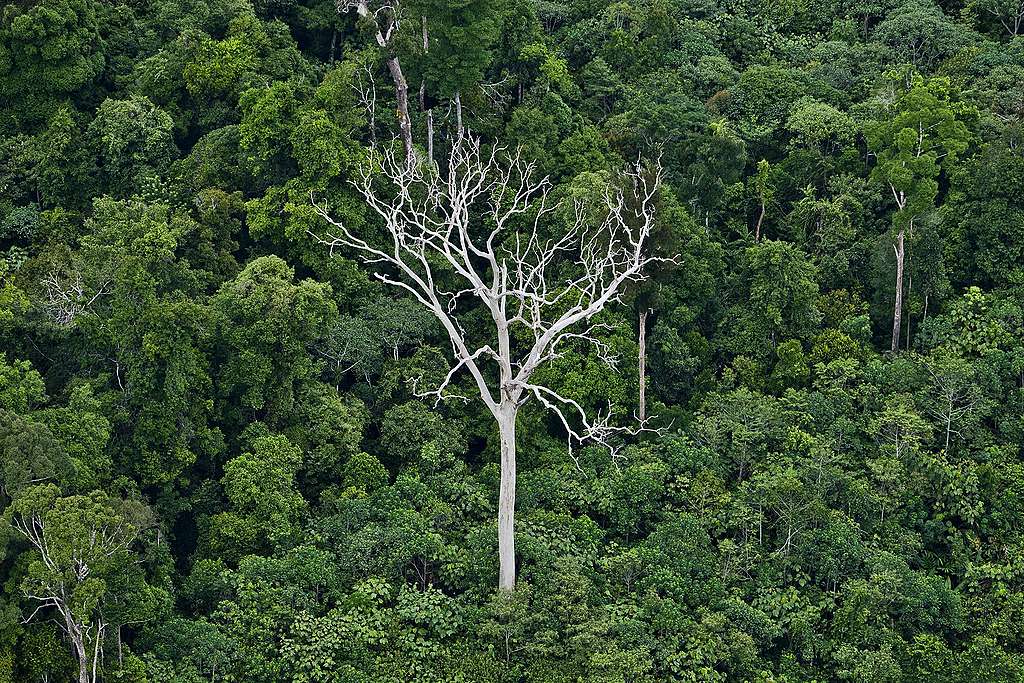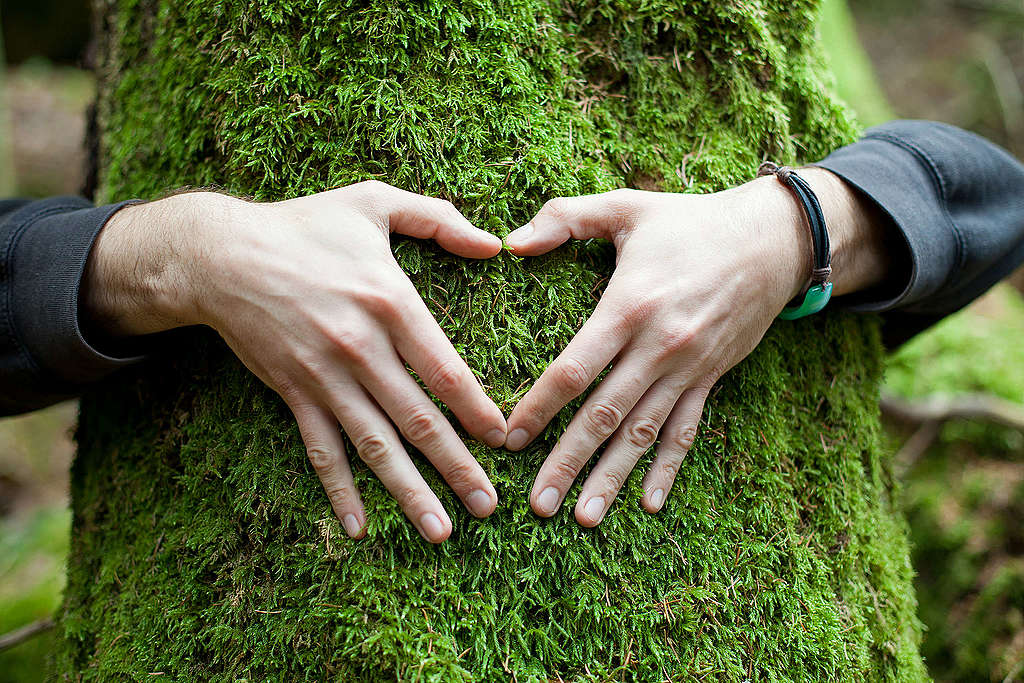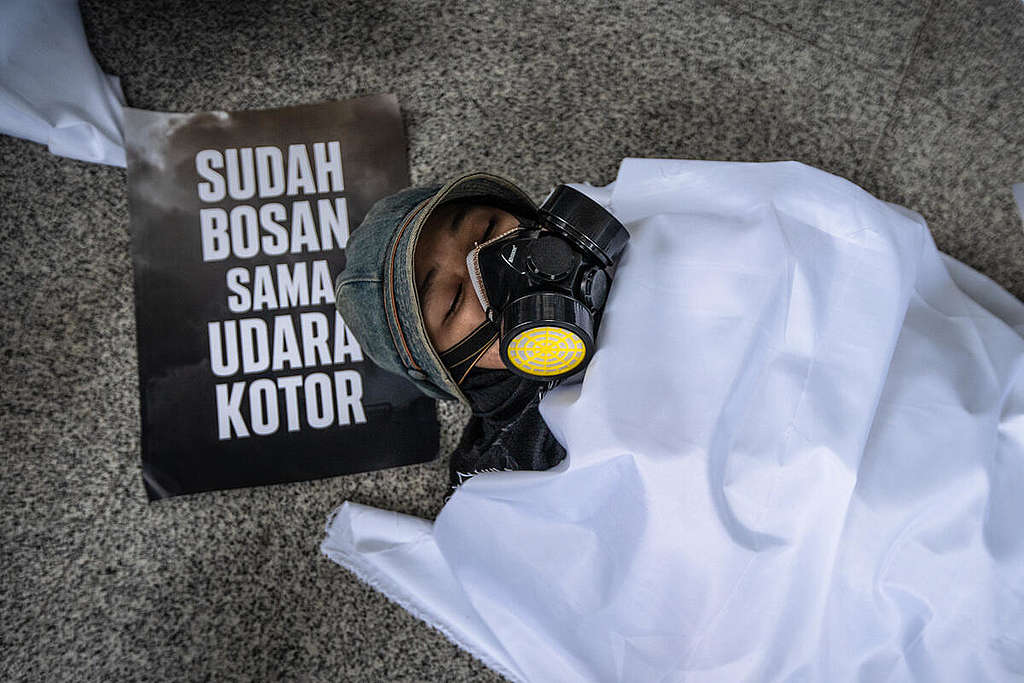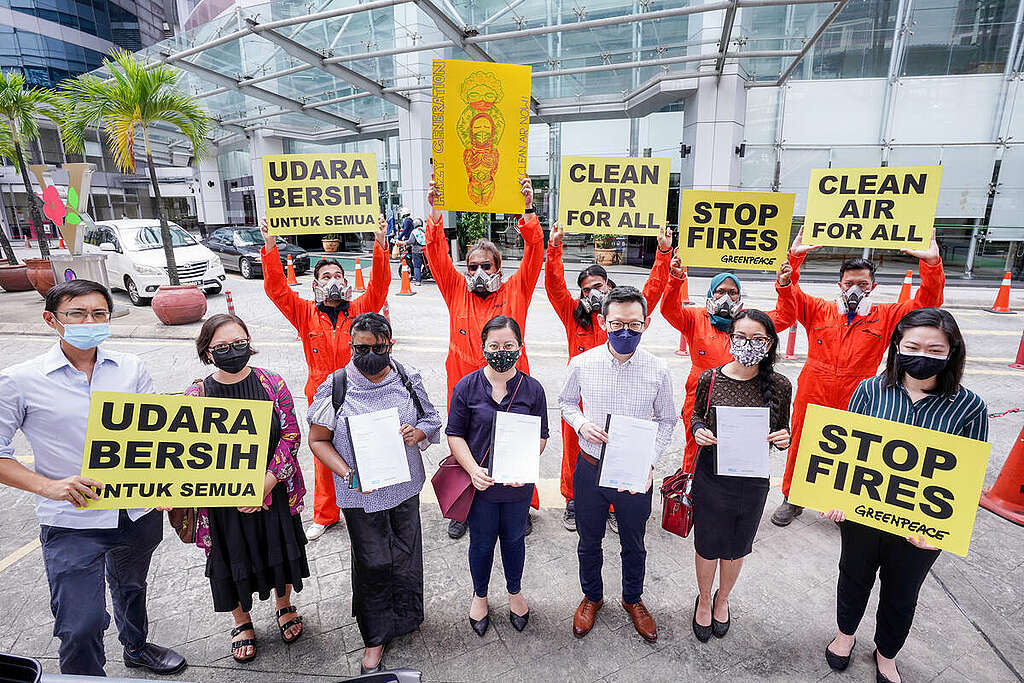Deforestation
Peatland and forest destruction are resulting in forest fires, loss of wildlife habitats and ecological damage that affects our health.
When peatlands are cleared and drained to make way for plantations, such as oil palm and other monoculture farming, this carbon-rich peat becomes tinder dry and vulnerable to fires, creating more haze.
In Malaysia and Indonesia, the places where wildfires burn most intensely mostly occur on peatland.
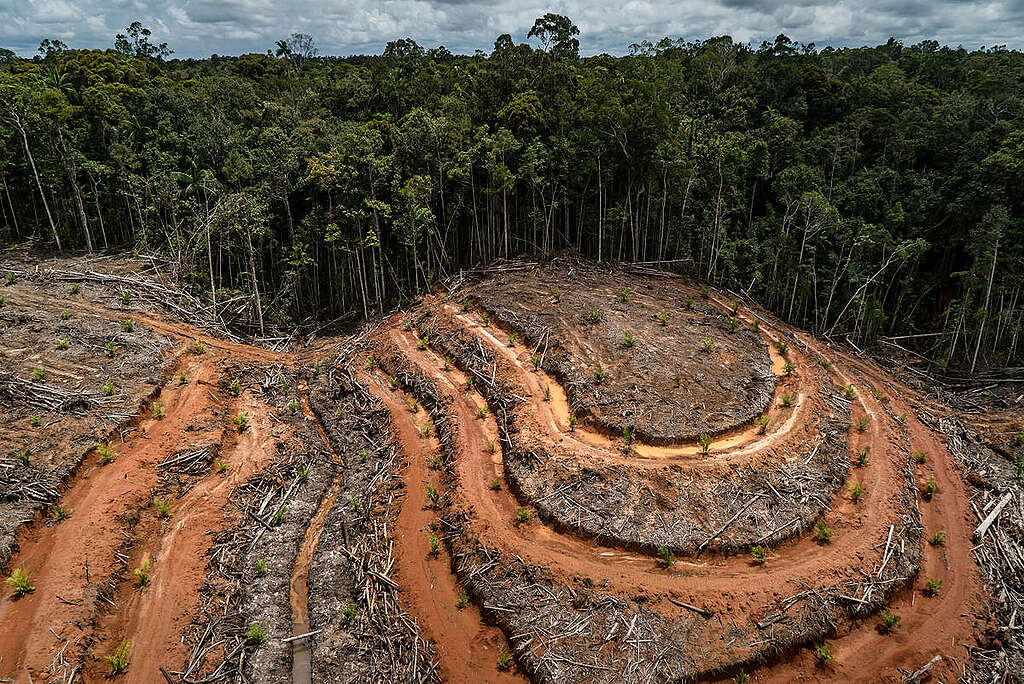
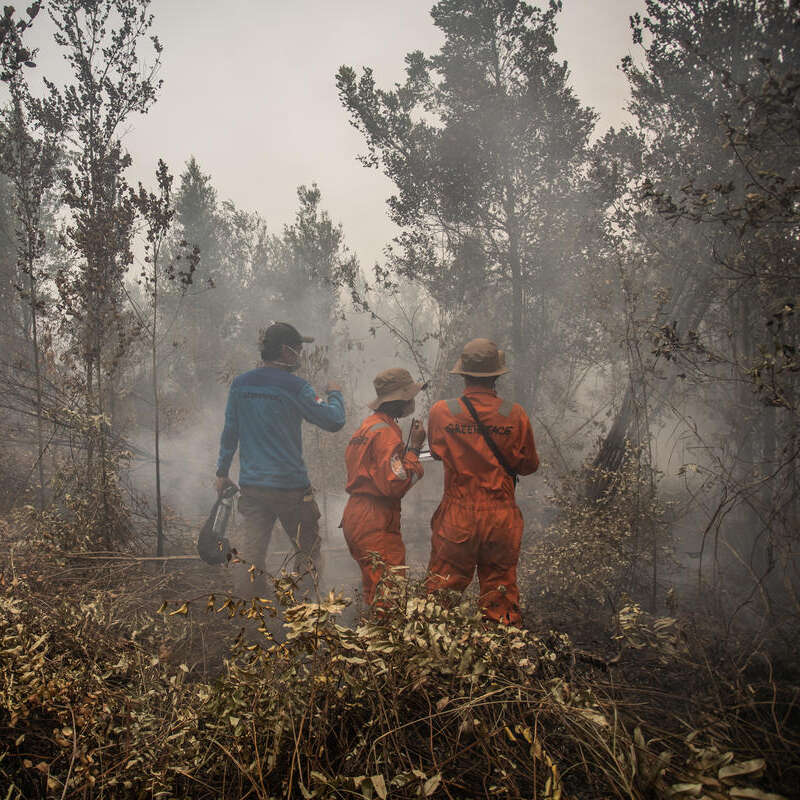
The problem
The palm oil industry’s expansion into rainforests and peatlands are destroying biodiversity, causing peat fires and transboundary haze in Southeast Asia.
Oil palm can be grown sustainably without destroying rainforest, only if the palm oil industry agrees to fundamental reform.
The future of the palm oil industry depends on palm oil companies adopting a new model of trade based on radical transparency, independent verification and zero tolerance for deforestation and human rights abuses.
What we do
Greenpeace believes that palm oil can be produced responsibly, without deforestation. Some of the world’s largest traders and brands have committed to having deforestation-free supply chains that meet their No Deforestation, No Peat, No Exploitation (NDPE) commitments – meaning they don’t use products from companies that destroy rainforests.
NDPE provides a great platform for the industry to reform and repair the damage to its reputation. But the industry’s failure to implement these NDPE policies is doing more damage to the sector’s reputation.
Greenpeace is pressuring the companies to walk the talk, asking more responsible businesses to stand up and oppose the bad companies that destroy rainforests and give the rest of the industry a bad name.
Meanwhile, Greenpeace also works with small farmers in the region to implement No deforestation policy, Good Agricultural Practices (GAP), product traceability and fire management to support best practices in the management of plantations.
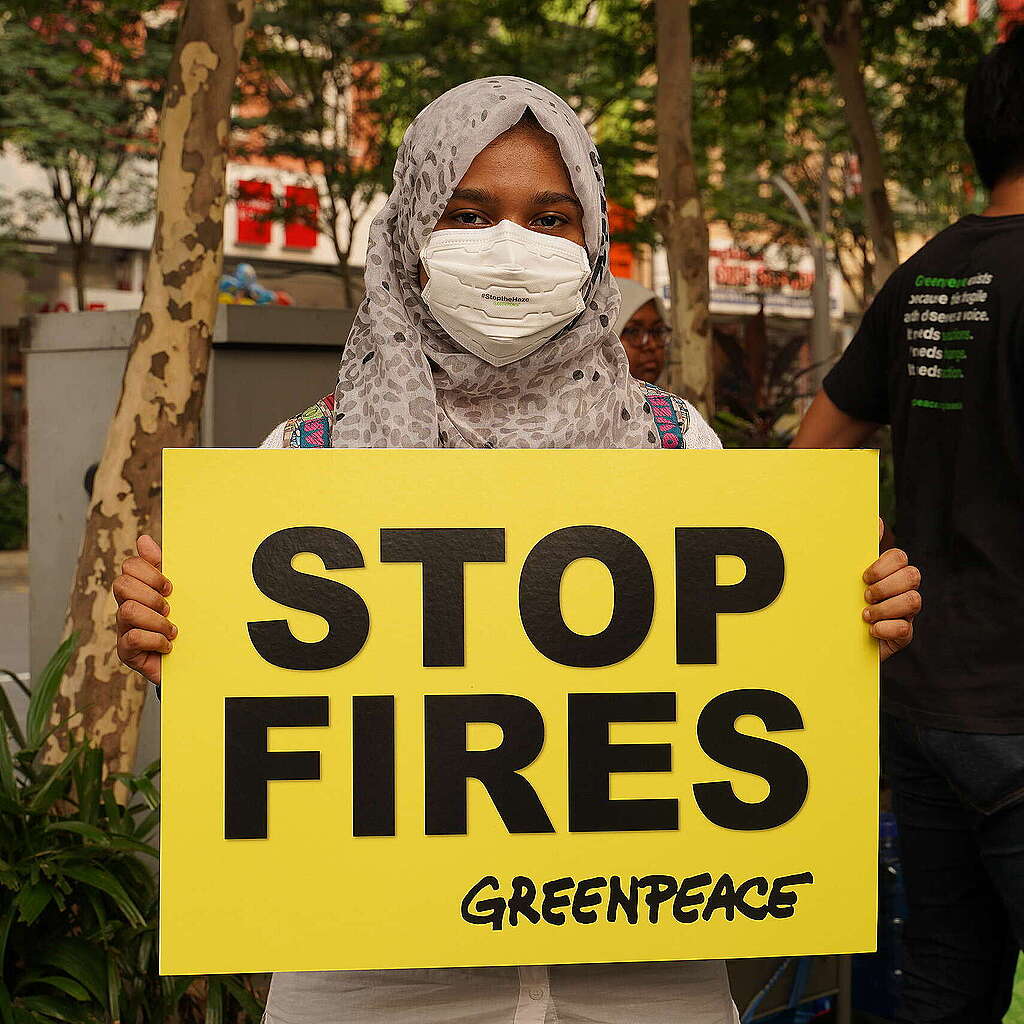
Keep learning about
Subscribe for updates
Together we are part of a growing, global movement determined to bring about the changes our planet desperately needs.

